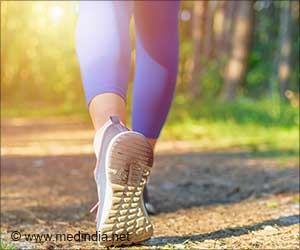Aerobic exercise, resistance or strength training can reduce blood pressure, says study.

However, alternative therapies shouldn't replace proven methods to lower blood pressure - including physical activity, managing weight, not smoking or drinking excess alcohol, eating a low sodium balanced diet and taking medications when prescribed, the association said.
High blood pressure - a major risk factor for heart attack and stroke - affects more than 26 percent of the population worldwide and contributes to more than 13 percent of premature deaths.
An expert panel assessed three alternative remedy categories: exercise regimens; behavioral therapies such as meditation; and non-invasive procedures or devices including acupuncture and device-guided slow breathing. The panel did not review dietary and herbal treatments.
"There aren't many large well-designed studies lasting longer than a few weeks looking at alternative therapies, yet patients have a lot of questions about their value," said Robert D. Brook, M.D., Chair of the panel and an associate professor of medicine at the University of Michigan in Ann Arbor. "A common request from patients is, 'I don't like to take medications, what can I do to lower my blood pressure?' We wanted to provide some direction."
The alternative therapies rarely caused serious side effects and posed few health risks, but the analysis revealed some approaches were more beneficial than others and could be part of a comprehensive blood pressure-lowering treatment plan.
Advertisement
The studies also examined the effects of yoga, different styles of meditation, biofeedback methods, acupuncture, device-guided breathing, relaxation and stress reduction techniques.
Advertisement
Behavioral therapies such as biofeedback and transcendental meditation may help lower blood pressure by a small amount, the report said. However, there's not sufficient data to support using other types of meditation.
"Most alternative approaches reduce systolic blood pressure by only 2-10 mm Hg; whereas standard doses of a blood pressure-lowering drug reduce systolic blood pressure by about 10-15 mm Hg," Brook said. "So, alternative approaches can be added to a treatment regimen after patients discuss their goals with their doctors."
Given the global public health burden of high blood pressure more research is needed to look at the long-term cardiovascular health impact of alternative therapies and the effects of combining them together or adding them to other proven lifestyle measures, Brook said.
The study has been published in the journal Hypertension.
Source-ANI









